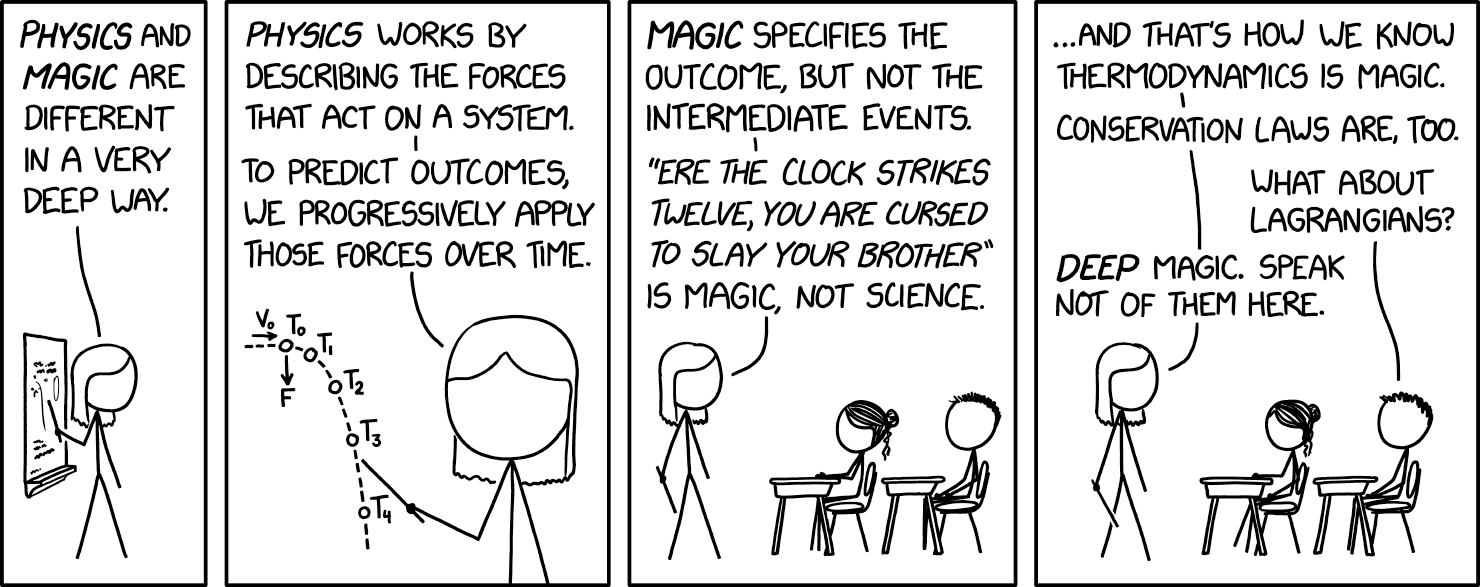this post was submitted on 09 Mar 2024
517 points (98.7% liked)
xkcd
12758 readers
166 users here now
A community for a webcomic of romance, sarcasm, math, and language.
founded 2 years ago
MODERATORS
you are viewing a single comment's thread
view the rest of the comments
view the rest of the comments

Sadly a lot of math heavy textbooks love to present the equations and how to use them, but do a poor job explaining how those equations came to be.
This was one of my biggest issues with math myself. Sin, cos, tan, and logarithms still confuse me. Meanwhile, derivatives (a calculus concept) are pretty straightforward conceptually with the physics examples of distance, speed, and acceleration.
Derivatives are the change in something. So if you have a graph of something's distance over time, the derivative is a graph of the change in distance at any given moment, or the speed of the object. Likewise, the derivative of the object's speed is a graph of the object's acceleration, or the change in the object's speed at any given moment.
Anyway, this is also something that I used to rant about with my programming courses in college. You need an understanding of both the concept and the execution of it in order to program with a consistent amount of success, but most courses (and learning material) focus on one or the other.
I do systems admin/engineering, and I'm the team code monkey, but my co-workers want to learn. It's still the core hurdle I see my them make when they try to script. They either have the concept down with no clue how to script it, or they're flailing script snippets around without actually understanding what those parts actually do.
Logarithms confuse me too, even though I "invented" logarithms one day when I was bored before ever being taught about them. I know they're exponents in reverse, and I know they can be useful to diminish the relative weight of larger numbers, but whenever I see logs in an equation, my degree of "I can figure out what this equation does" takes a significant hit.
Whenever dealing with exponential stuff i try to just focus on the formula of what is happening in the exponent. logarithms are taking that down to "normal space". E.g. exponential functions are like in a warp drive, but you still have ships that can warp faster than others.